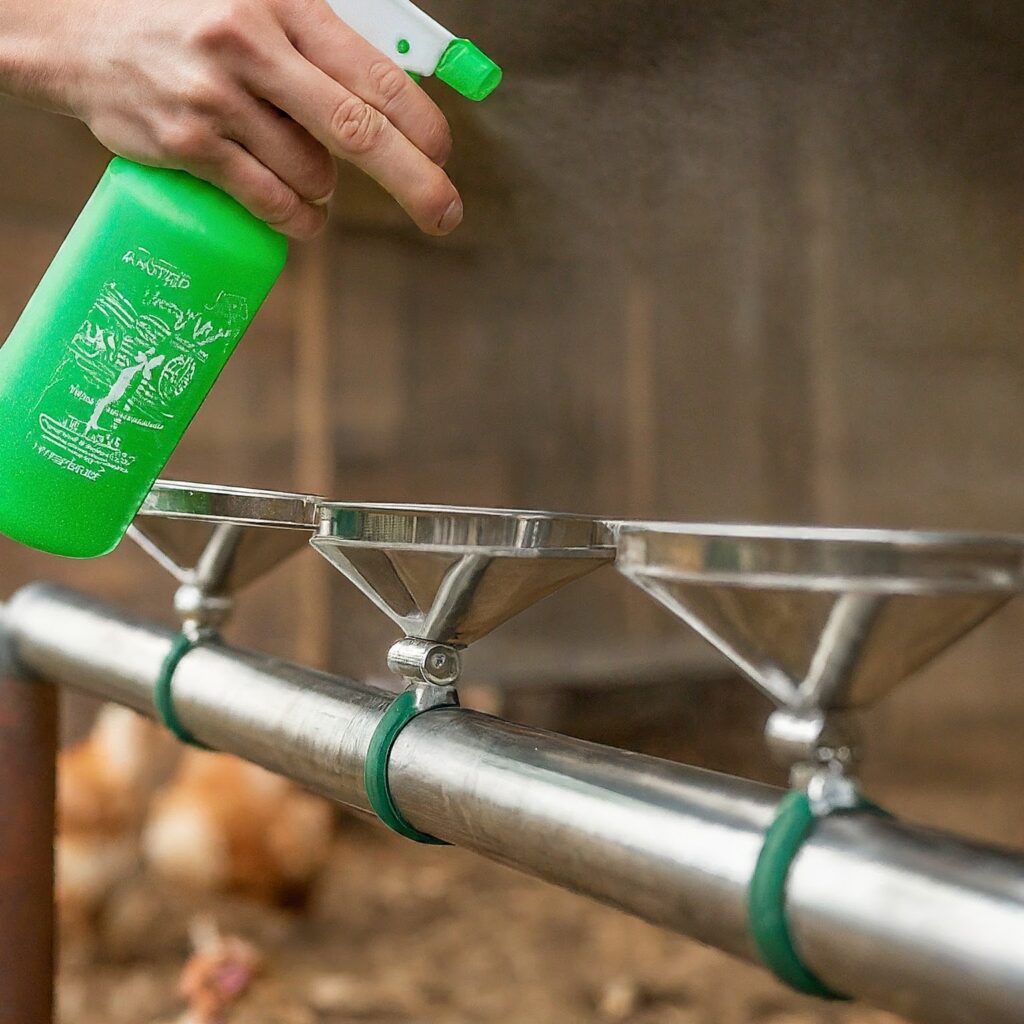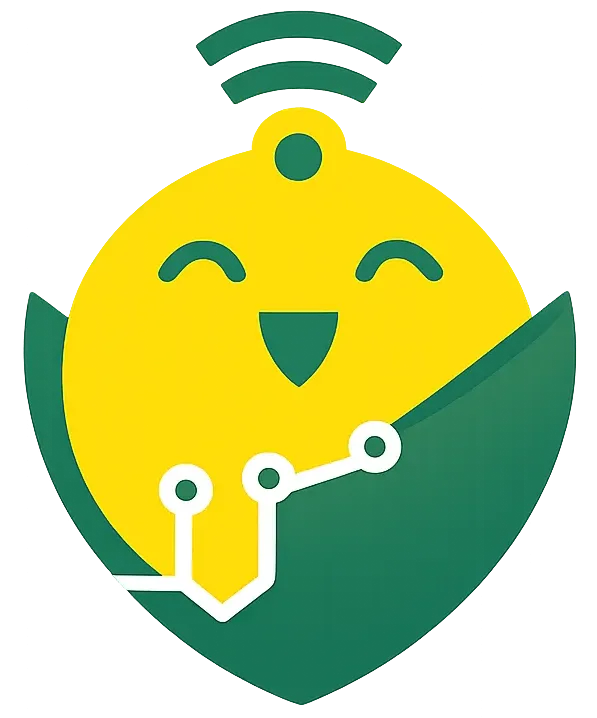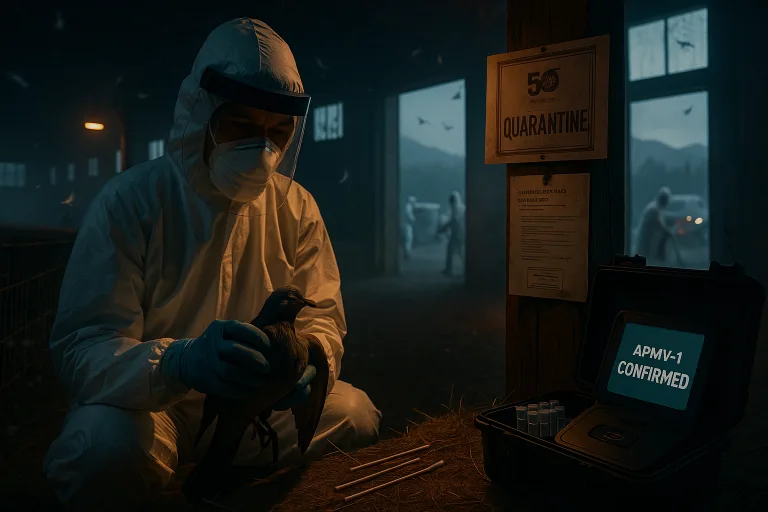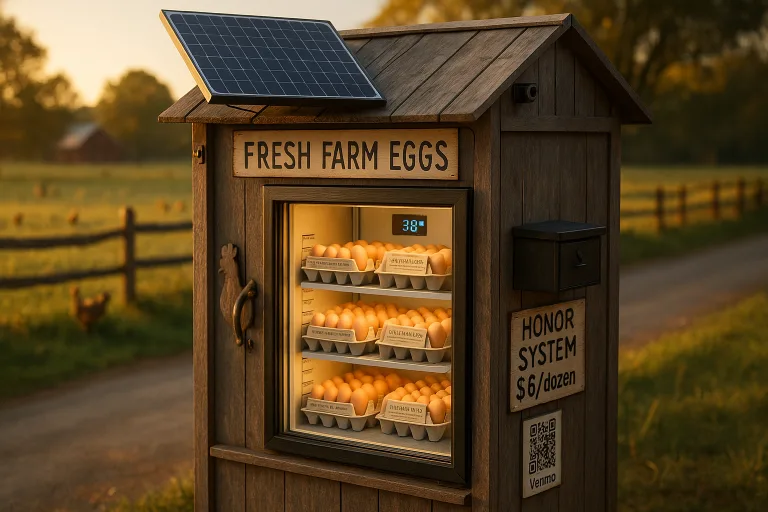Biosecurity Measures: Protect Your Broiler Farm Against Diseases and Threats
Biosecurity is an essential aspect of broiler farming, ensuring the protection of flocks against diseases and threats. With the constant advancements in technology and industry practices, breakthroughs in biosecurity measures have been achieved, revolutionizing the way broiler farms operate.
From implementing controlled access and quarantine protocols to maintaining strict hygiene practices and educating staff, a comprehensive approach to biosecurity is paramount.
In this article, we will explore these breakthroughs and discuss how they are boosting broiler farms safely. By the end, you will gain valuable insights into the innovative strategies employed by farmers to enhance biosecurity and improve flock health, leaving you eager to discover the benefits and outcomes of these practices.
Biosecurity Measures for Broiler Farms
Biosecurity measures are crucial for ensuring the safety and well-being of broiler farms. Implementing biosecurity protocols and disease prevention strategies are fundamental in safeguarding the health of broiler flocks.
Controlled access to broiler farms and the implementation of quarantine protocols play a vital role in preventing the entry and spread of diseases. Regular monitoring of flocks allows for early detection of any potential signs of disease, enabling prompt intervention and minimizing the risk of outbreaks.
Additionally, strict hygiene practices, such as regular disinfection and waste management, help to maintain a clean and pathogen-free environment. Training and education programs for farm staff ensure that they are equipped with the necessary knowledge and skills to carry out biosecurity measures effectively.
The Role of Farm Management
Effective farm management practices play a crucial role in supporting and implementing biosecurity goals on broiler farms. By integrating biosecurity protocols into daily farm operations, farm management strategies can effectively identify and manage potential biosecurity risks.
Collaboration between farm management and biosecurity teams is essential to ensure the successful implementation of biosecurity measures. Regular farm monitoring through software enables real-time risk detection, allowing for immediate action to be taken. This software also offers features such as data analysis and reporting, which provide valuable insights into biosecurity performance.
Additionally, streamlined record-keeping and documentation of biosecurity measures enhance the traceability of farm activities and interventions. By harmonizing farm management with biosecurity, broiler farms can fortify their operations against disease outbreaks, improve flock health and welfare, and ensure compliance with industry standards and regulations.
Leveraging Software for Farm Monitoring
Farm monitoring can be significantly enhanced through the utilization of software, providing broiler farms with efficient tools for real-time risk detection and management. Real-time data analysis is a key feature of farm monitoring software, allowing farmers to receive immediate insights into the health and biosecurity status of their flocks. This enables prompt action to be taken in response to any potential threats or issues.
Additionally, software solutions offer streamlined record-keeping capabilities, allowing farmers to easily document and track their biosecurity measures. This ensures that all necessary protocols are being followed and provides a comprehensive record for auditing purposes.
The combination of real-time data analysis and streamlined record-keeping not only improves the efficiency of farm monitoring but also enhances traceability and accountability in biosecurity management.
Overcoming Biosecurity Challenges
To successfully navigate the complexities of biosecurity implementation, broiler integration farmers must proactively address and overcome various challenges that may arise.
Adapting strategies is key to staying ahead of evolving biosecurity threats and regulations.
Effective communication plays a vital role in ensuring that all stakeholders, from farm management to biosecurity teams, are on the same page and working towards the common goal of protecting flock health.
Additionally, continuous improvement through feedback and evaluation allows farmers to identify and rectify any weaknesses in their biosecurity protocols.
Proactive approaches, such as regular farm monitoring and risk management, help minimize biosecurity risks and fortify broiler farm operations against disease outbreaks.
Benefits of Harmonizing Farm Management
Harmonizing farm management practices in broiler integration farms yields multiple benefits, including improved biosecurity measures, enhanced flock health and welfare, increased productivity and profitability, compliance with industry standards, and strengthened consumer and stakeholder trust.
By aligning farm management strategies with biosecurity protocols, broiler farms can achieve improved efficiency and risk mitigation. Effective farm management practices enable the identification and management of potential biosecurity risks, ensuring that the necessary steps are taken to prevent disease outbreaks.
Furthermore, harmonizing farm management with biosecurity measures allows for the integration of protocols into daily operations, ensuring that all staff members are trained and educated on the importance of biosecurity. This holistic approach not only fortifies broiler farm operations against disease outbreaks but also enhances productivity and profitability while complying with regulations and industry standards.
Ultimately, harmonizing farm management practices strengthens the reputation and trust of consumers and stakeholders in the broiler industry.

Ensuring Compliance With Regulations
Ensuring compliance with regulations is essential for broiler farms to maintain biosecurity standards and protect the health and welfare of their flocks. To achieve this, broiler farms can implement various regulatory compliance strategies, such as:
- Regular audits and inspections to assess adherence to standards
- Documentation and record-keeping of biosecurity measures
- Training programs for farm staff on biosecurity protocols
- Collaboration with regulatory bodies to stay updated on new requirements
Continuous Improvement and Evaluation
Continuous improvement and evaluation are crucial components in maintaining and enhancing the biosecurity measures of broiler farms.
Implementing continuous improvement strategies allows farmers to identify areas of weakness and make necessary adjustments to their biosecurity protocols. This could include updating standard operating procedures, providing additional training to staff, or investing in new technologies to improve disease surveillance.
Evaluating the effectiveness of biosecurity measures is equally important, as it allows farmers to assess the impact of their efforts and make data-driven decisions. This can be done through regular monitoring of disease incidence rates, conducting thorough audits of biosecurity practices, and seeking feedback from industry experts.
Conclusion
In conclusion, the breakthroughs and advancements in biosecurity practices have revolutionized the broiler industry, allowing farmers to enhance their operations safely.
By implementing comprehensive biosecurity measures, such as controlled access, quarantine protocols, and strict hygiene practices, broiler farms can ensure the health and welfare of their flocks.
Leveraging software for real-time monitoring and data analysis further improves traceability and risk management.
Overcoming challenges through adaptability and continuous improvement strengthens biosecurity implementation, ultimately building trust and reputation among consumers and stakeholders.


